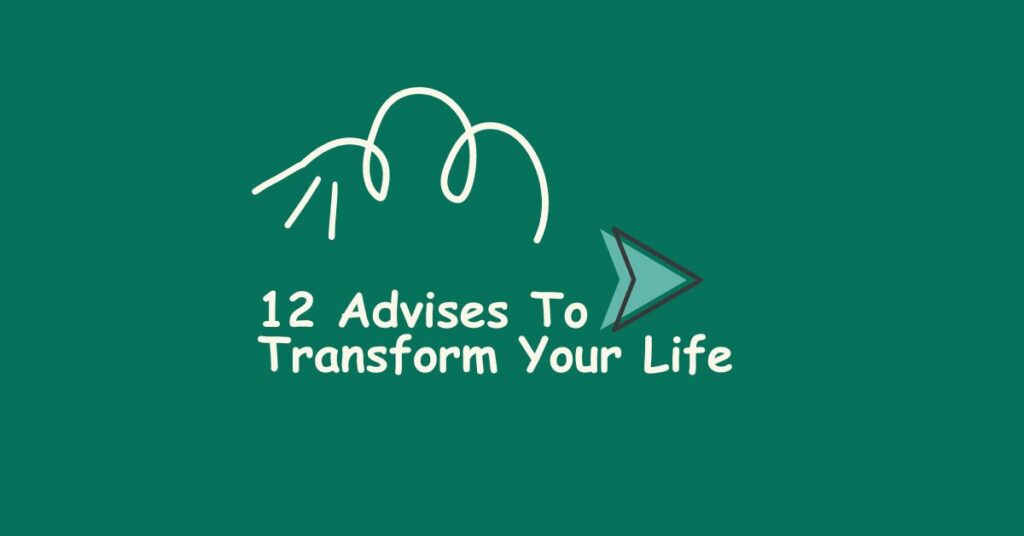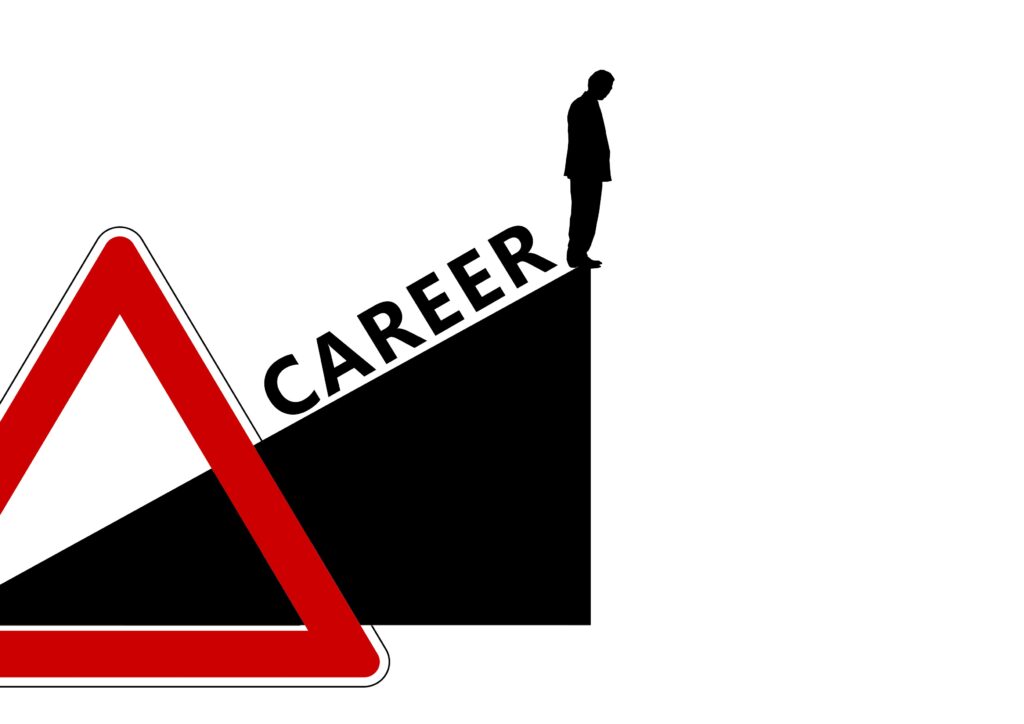There are some effective habits that have helped me a lot in my life to succeed. I can share this from my personal life experience so that you don’t have to fail in your life. I believe that if you can incorporate a minimum of these habits into your life, you will benefit a lot.
Table of Contents
1.Improve Knowledge:
I have faced many scams throughout my life. For example, someone from social media offered me a job. He told me that I don’t need any certificate, nor any experience. Even I don’t have to know the work. They will teach me and will give me $4000 per month. Many will know that it’s a scam, but not everyone.
Another example, someone will ask you that if you invest $50 he can triple it within an hour. There is no trading site that can guarantee your investment will triple in hours. If someone asks this, just report them.
If you believe that “No Risk, No Gain” and make an investment considering it a small amount, then they (scammers) will say that you are a lucky investor who earned 15 times more profit than your investment. When you ask them to send it to your account, they will ask you to send some money to transfer it, as it takes a charge to withdraw money. (No, it truly does not require that high amount of money to withdraw). They will continuously ask you to give money for various reasons related to withdrawing your profit. But believe me, you won’t get a cent from them.
There are many scams like this in this world. The above examples are common, but some are major and it’s hard to identify them as scams.
To get rid of or stay safe from these, everyone needs proper knowledge. Not a degree. You can’t stop scams but you can develop your common sense. Everyone doesn’t have common sense. To increase your common sense, you need to develop your life. This development will come if you increase knowledge about this digital world. Many pieces of information won’t relate to your subject, job, or business. Some knowledge will develop your life in a great way that you will be easily able to trace any kind of scam or fake things.
2.Investment
Be an early investor. If you have saved some money, then use it to increase it in genuine sectors. If you don’t have enough savings, borrow money from your family, friends, or someone who will give you money.
Starting to invest at a young age increases your chances of becoming a millionaire significantly.
I invested in my 20s and regularly invested. On the other hand, one of my senior cousins invested in his 30s. Now my wealth is much more than his.
Investing at an early age will make you wealthy compared to someone who invests in their 30s.
The main factor in this is compound investment.
A compound investment is one that benefits from compound interest. This means your earnings grow on top of themselves over time. Imagine it like a snowball rolling downhill – it gets bigger and bigger as it goes.
For example, if you invest $100 at 5% interest, you’ll earn $5 in the first year. But in the second year, you’ll earn interest on both the original $100 and the $5 you earned earlier, for a total of $5.25. That’s the power of compound interest! And it will increase every year gradually.
So if you start investing, you will be ahead of others.
Some additional tips for young investors:
-
Do your research: Before investing in anything, it’s important to understand the risks and potential rewards.
-
Invest according to your risk tolerance: How comfortable are you with the possibility of losing money? There are investments for all risk tolerances, so choose ones that are right for you.
-
Don’t put all your eggs in one basket: Diversify your portfolio across different asset classes to reduce risk.
-
Automate your investments: Set up automatic transfers to your investment accounts so you can pay yourself first.
-
Be patient: Investing is a marathon, not a sprint. Don’t get discouraged if you don’t see results overnight.
3. Degrees Won’t Give You Leverage
Getting a degree has become easier than getting a good job in many countries. If you don’t have a degree, people may call you uneducated, but it may not affect your long-term career.
Take a degree but learn high-valued skills and gather work experience. It will benefit you immensely in your career.
A bunch of degrees won’t give you leverage. You have to participate in co-curricular activities. To be different from others in this field, you need a side hustle, ventures, volunteer activities, or any specific field that will differentiate you from others. Traditional degrees won’t help you become unique from others.
The more you increase your activity in those, the more ideas and experience you will have. These ideas and experiences will help you in the long run.
4.Avoid Buying Fancy Stuffs
Don’t use your parents’ or your own money to buy fancy things. There is no real value in buying fancy things.
Many people buy fancy things for signaling purposes. If you have an iPhone, you will look more fancy. But it’s far better to invest rather than buy an iPhone in your early years. If you become a millionaire, you can buy the latest version of the iPhone or other brands without even hesitating.
There is no end to buying luxurious things. One time in your life you may regret buying these stuffs. But you won’t regret investing. You will have to buy things that are luxurious but essential or give you pleasure. It will be better to avoid buying fancy things that you may regret later.
Investing can be a powerful tool for building wealth and securing your future, while mindful spending on fancy things can add some enjoyment to life.
5.Goal
From my personal experience, goals are not crucial to succeed in life. I had set many goals in my life. But these goals didn’t benefit me much.
The thing that will benefit you is having a change and consistency. If your goal becomes consistent, then it surely will benefit you.
For example, you started to drink coffee without sugar. It’s not a goal. It’s just a change. If you follow it consistently, it will benefit you.
In some cases, goals don’t help you become consistent. But if you set a goal and intend to complete it within a time, then chances are high that you achieve it if you maintain focus on it.
When you don’t have specific goals, there will be value in having a general direction or areas of interest. This can help guide your decisions and actions to some extent.
6. Advice Fleecy
When you ask for advice from people, the person whom you are asking for advice won’t give you normal advice. He/She will try to give a unique piece of advice. That person will think that he/she gave you good advice.
A person will always try to give unique and helpful advice to others if asked.
For example,
I am a digital marketer. If someone comes and asks me, “I want to learn digital marketing, what should I do?”
I will try to give unique advice from others so that its effectiveness increases.
I will try to give you unique advice to become smart in my mindset.
People try to give unique advice just to satisfy a portion of their brain. Most of their advice is useless because they give it instantly without researching and having experience about it. So be very careful when taking advice from just anyone.
It’s important to be critical of any advice you receive, regardless of how unique it seems. Consider the source, their expertise, and whether the advice aligns with your aims and situation.
7.Build Connections Using Values
Connections and relationships are the most important assets in your life. These assets are more important than your house, car, mobile, or land.
Who do you know? Who knows you? This can change your life.
But if you just talk to a person on social media, for example, you ask him how he is. Then after a month, you again ask him about himself. And after a time, you wish him a happy new year. This type of connection doesn’t exchange any value.
“Hi-and-bye” social media connections are like empty calories. They might fill a space, but they don’t offer real nourishment.
So build connections focused on values.
People will respect you if they get value from you. None can deny it.
When you want to build a relationship with someone, the first thing you have to think about is how to value that person.
When you go above and beyond to help someone, you create a positive association. They’ll remember your assistance and be more likely to view you favorably.
For example, you notice a teammate is overloaded with tasks. Proactively, you take on some of their workload without being asked. This shows you value their time and well-being, and lightens their burden.
When a project succeeds due to a team effort, be sure to highlight the contributions of others, especially those who might not always get the spotlight. This shows you value their work and appreciate their role in the achievement.
You have a skill, and you are benefiting someone with your skill without taking any benefit is valuing that person.
But, understand when your skill is valuable? Don’t give your time and skill to those who do not value them. Connections will help you in many aspects of life, but it’s important to be strategic, especially when your skills are valuable. The relationships that are built through offering value become stronger.
8.Start Journaling
Journaling can be a powerful tool on your path to a successful life. The biggest benefit of journaling is that it structures your thinking. Most of the time, we can’t think of a specific issue in a structured way. Why?
Because other thoughts play in our minds, so it’s very easy to be distracted from good thinking. Only writing will structure your thinking.
Starting to write about your thinking might feel uncomfortable or hard to you. The best way to start writing is to start about your daily life in a diary. By writing consistently, you will see after a time that your thinking ability is modified. It becomes structured.
9.Start Traveling
Travel can be a transformative experience that shakes up your life in positive ways. Traveling has many benefits like it broadens your perspective, boosts self-confidence, increases adaptability, sparks creativity, deepens connections, and provides a fresh start.
Traveling helps you gather knowledge. Meet different types of people around the world. It increases your knowledge. It also teaches you to be independent. You will meet different people from different cultures, traditions. It will expand your thinking ability to a wider range.
The more you travel, the more you will explore things. Traveling doesn’t mean just going to another country, as it may not be affordable for all. So travel to other regions of your country. Visit the unvisited places. Refrain from limiting your life to just sitting at home.
Travel is an investment in personal growth, self-discovery, and a broader understanding of the world.
10.Start Reading
- Reading is more than just decoding symbols on a page; it’s a journey of discovery, a portal to new worlds and ideas. Books are vast repositories of knowledge on every imaginable topic. Whether you seek historical accounts, scientific breakthroughs, or practical guides, reading empowers you with knowledge. This knowledge can be the foundation for success in your chosen field or simply enrich your understanding of the world.
There are different types of books:
- Fiction: These are stories created from the imagination of the author.
-
- Non-Fiction: These books provide factual information about real-world topics.
- Fantasy: These stories take place in imaginary worlds that often include magic, supernatural creatures, and fantastical elements.
- Science Fiction: These stories are set in the future or in outer space and often explore the potential impact of scientific advancements, space travel, or encounters with extraterrestrial life.
- Mystery: These stories center around a crime or puzzling event that needs to be solved. The reader follows the investigation process along with the detective or protagonist.
- Children’s Books: These books are written for children and often feature simpler language, shorter chapters, and illustrations to engage young readers.
- Self-help Books: These are a type of non-fiction literature that aims to instruct readers on improving their personal lives. Self-help books are a type of non-fiction literature that aims to instruct readers on improving their personal lives.
Most of the successful people have read self-help books. One of the world’s richest persons said, “One idea is equal to millions of dollars.”
Books highly influence your thinking ability, creativity, stress reduction, mental well-being, personal life, and beyond everything.
11.Practice Gratitude
Gratitude is the feeling of thankfulness and appreciation. It’s recognizing and valuing the good things in your life, big or small. It is more than just good manners. It’s a powerful mindset shift that can significantly improve your well-being.
Gratitude boosts happiness, strengthens relationships, improves mental health, increases life satisfaction, and strengthens bonds.
For example, simply say, “Thank you so much for staying late and helping me with this project. I really appreciate it!” This acknowledges their effort and shows your genuine appreciation.
Also, at a restaurant, leave a quick note on your check like “Thanks for the service!” or “Made our night!” It shows appreciation to your server and can brighten their day.
Lastly, learn to appreciate what you have. Some people don’t have enough food, medicine, electricity, or their family. If you have them, then appreciate. By appreciating what we have, we cultivate a sense of contentment and well-being. It also motivates us to help others and make the world a better place.
12.Start a Business Before Your 30s
The older you become, the more responsibilities you will have. Doing a job is not bad. In fact, it gives you knowledge and money. But someone should continue their job for a specific time. After having enough knowledge, experience, and capital, someone should start their own business. It will make you financially independent. Yes, business is risky.
But remember, no risk, no gain. Jeff Bezos was an investment banker. He left his job just to start his own business. If he had not left that job, he wouldn’t have become the world’s richest person.
It’s important to remember that starting a business is a big decision and not for everyone. Here are some things to consider:
-
Business idea: Do you have a strong idea that fills a gap in the market?
-
Skills and experience: Do you have the necessary skills and knowledge to run a business?
-
Financial resources: Can you secure funding to get your business off the ground?
If you’re young, have a great idea, and are willing to put in the hard work, your 20s can be a great time to take the leap. If your business fails, you have more years ahead to learn from the experience and try again. Before turning 40, someone should have at least 2 successful businesses. You have to start a business before 30 because you won’t have chances to take big risks in life then. Your opportunity cost is very low in your 20s but will be higher in 30s. So start.
Conclusion
These 12 habits have helped me succeed in life. They include gaining knowledge to avoid scams, investing early, developing skills over degrees, prioritizing investments over fancy things, focusing on consistency over goals, being critical of advice, building valuable connections, journaling, traveling, reading, practicing gratitude, and starting a business before 30.
By following these habits, which focus on personal development, smart money choices, and building strong connections, you can achieve greater success and fulfillment in life.



